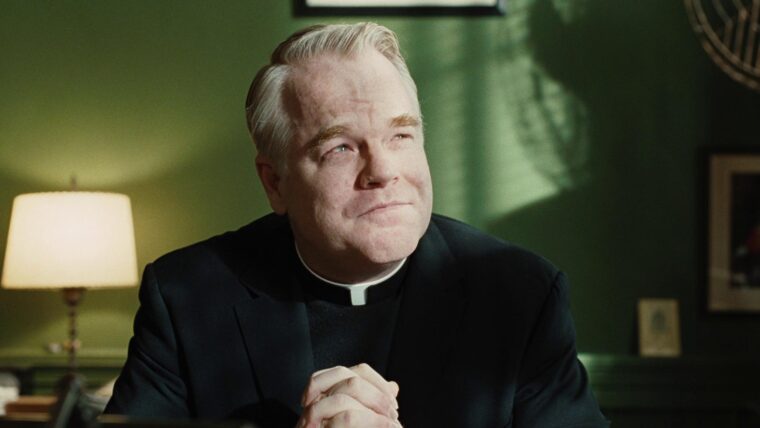The Twilight Zone, created by the visionary Rod Serling, remains a timeless treasure in the world of television. Known for its thought-provoking narratives and unexpected twists, this anthology series has seen contributions from some of the most talented writers in the industry. One such luminary is George R. R. Martin, renowned for his epic fantasy series “Game of Thrones.” While Martin is primarily associated with dragons, knights, and political intrigue, his foray into the science fiction and horror realm with five episodes of The Twilight Zone showcases his versatility as a writer. In this article, we will delve into Martin’s intriguing contributions to this iconic series. And this is about the 80’s show, not the original one.
“The Last Defender of Camelot” (1986)
George R. R. Martin’s first Twilight Zone episode, “The Last Defender of Camelot,” is a remarkable blend of Arthurian legend and modern morality. Airing in the series’ third revival season, this episode explores themes of power, immortality, and the consequences of wielding both.
The story revolves around Sir Lancelot (played by Richard Kiley), who has lived for centuries due to the mystical powers of the Lady of the Lake. He encounters Dr. Mordred (played by Simon Scott), who has discovered the secret to eternal life. The narrative takes a dark turn as the characters grapple with the ethical dilemmas posed by their prolonged existence.
Martin’s writing shines in the intricate character development and moral ambiguity of the tale. He deftly navigates the age-old conflict between good and evil, showing that the line between the two can blur over centuries. The episode’s unexpected conclusion leaves viewers pondering the true cost of immortality and the sacrifices one must make to retain it.
“The Once and Future King” (1987)
In Martin’s second contribution to The Twilight Zone, “The Once and Future King,” he once again dips into Arthurian legend, this time with a contemporary twist. This episode, which aired during the fourth revival season, explores themes of destiny, the weight of power, and the cyclical nature of history.
The story follows Arthur (played by Jeff Yagher), who awakens in a modern hospital, uncertain of his identity. He is soon recognized as King Arthur and learns that his return is tied to the emergence of a new crisis involving a nuclear threat. The narrative weaves together the ancient legend of King Arthur with the dangers of modern technology and the eternal struggle against evil.
Martin’s storytelling prowess is evident as he updates the Arthurian legend to resonate with contemporary audiences. He explores the timeless theme of leadership, illustrating that even in a modern world fraught with complexities, the qualities of honor, courage, and sacrifice remain relevant.
“Lost and Found” (1986)
“Lost and Found” is another intriguing Twilight Zone episode penned by George R. R. Martin. This episode explores the supernatural and the price one might pay for tampering with the unknown.
The story revolves around a young woman named Amanda (played by Susan Strasberg), who discovers a mysterious glass bottle that can grant wishes. As Amanda’s wishes lead to unintended consequences, she learns that even seemingly harmless desires can have a dark side.
Martin’s storytelling in “Lost and Found” showcases his talent for blending elements of fantasy and horror. The episode serves as a cautionary tale about the dangers of unchecked power and the unforeseen consequences of our desires.
“The Toys of Caliban” (1986)
The difficulties of raising a youngster with exceptional ability are explored by George R. R. Martin in “The Toys of Caliban”. This episode explores the supernatural and the accompanying emotional upheaval.
Anthony (played by Joshua Harris), a teenage son of the family, has the ability to make his fantasies come to life. His creations, however, frequently take the form of terrifying monsters, which causes anxiety among the family.
Martin’s story dives deeply into the characters’ psychological and emotional challenges, illustrating how challenging it is to manage love and terror when dealing with a youngster who has extraordinary—and perhaps dangerous—powers. In the face of the remarkable, “The Toys of Caliban” explores poignantly the difficulties of fatherhood.
“The Road Less Travelled” (1986)
George R. R. Martin’s “The Road Less Travelled” is a thought-provoking Twilight Zone episode that delves into the concept of choices and the roads not taken. Airing alongside “Lost and Found” and “The Toys of Caliban” during the third revival season, this episode takes viewers on a journey through alternate realities.
The story sees a kid starting to find her family home haunted by a strange old wheelchair-bound guy. It soon transpires that this isn’t a routine haunted house effort but that instead the guy hails from an alternate reality where things have turned out very different.
Martin’s writing in this episode invites viewers to reflect on the choices they’ve made in their own lives and the paths they’ve chosen. It explores the idea that even small decisions can have significant and unexpected impacts on one’s life.
George R. R. Martin’s contributions to The Twilight Zone demonstrate his ability to transcend genres and deliver compelling narratives that provoke thought and introspection. Through his five episodes, Martin masterfully combines elements of classic legend, supernatural intrigue, and philosophical reflection, showcasing his versatility as a writer.
In these episodes, Martin invites viewers to contemplate the enduring dilemmas of human existence, the consequences of power, the complexities of parenting, and the nature of choice. While he may be best known for his epic fantasy works, his ventures into the realms of science fiction and horror within The Twilight Zone showcase his storytelling prowess and his ability to captivate audiences with thought-provoking tales.
George R. R. Martin’s Twilight Zone episodes serve as a captivating reminder of his enduring talent and the depth of his creative imagination. Whether in the realms of dragons or the supernatural, Martin’s storytelling continues to captivate and provoke thought, leaving an indelible mark on the world of television.



